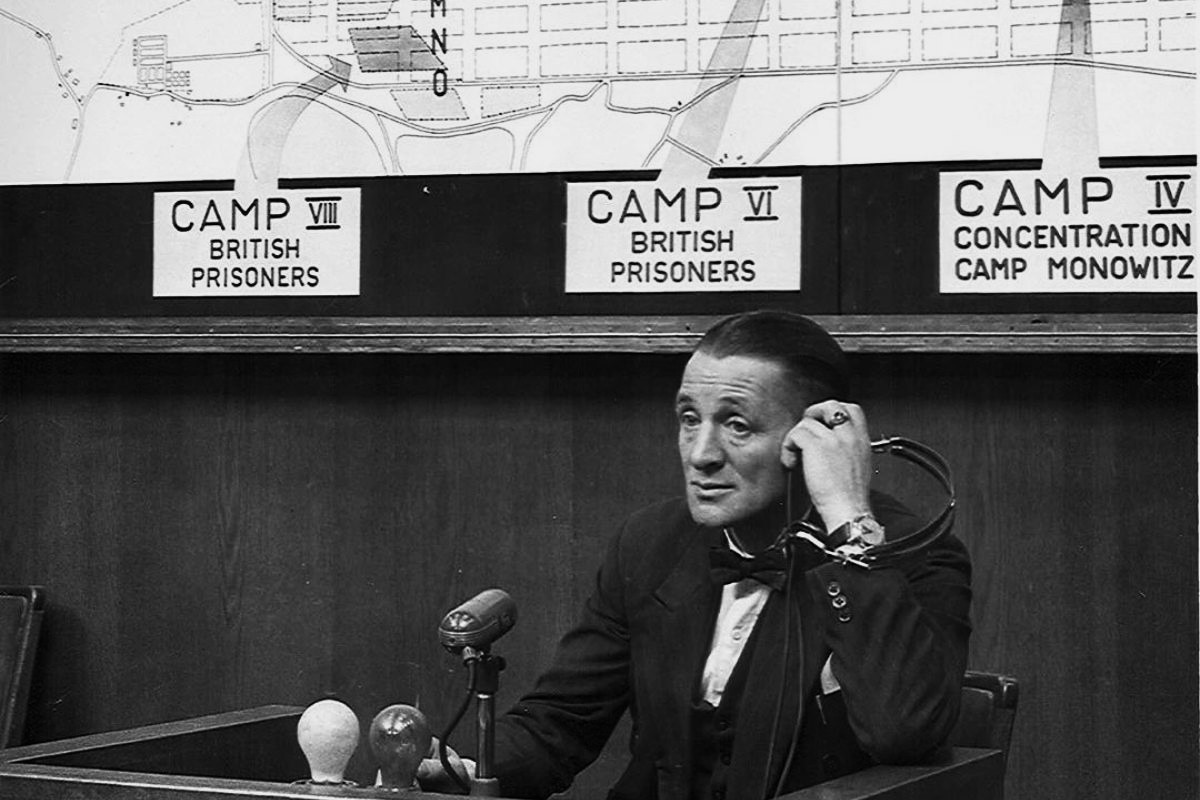
Who was Charles Coward? Charles Coward, often called the "Count of Auschwitz," was a British soldier and spy during World War II. Captured by the Germans, he used his position to save hundreds of Jews from the Holocaust. Coward's bravery and cunning helped him smuggle food, medicine, and even people out of concentration camps. He gathered crucial intelligence for the Allies, risking his life repeatedly. His story is one of incredible courage and resourcefulness. Coward's actions earned him numerous accolades and a place in history as a true hero. Ready to learn more about this remarkable man? Let's dive into 36 fascinating facts about Charles Coward.
Key Takeaways:
- Charles Coward, a British soldier, defied the Nazis and saved lives during World War II. His bravery at Auschwitz and beyond continues to inspire courage and individual action against tyranny.
- Despite leading a quiet life, Coward's legacy lives on through books, films, and Holocaust memorials. His story reminds us that one person can make a difference and triumph over fear.
Charles Coward: The Man Who Defied the Nazis
Charles Coward, often called the "Count of Auschwitz," was a British soldier who became a hero during World War II. His bravery and cunning saved countless lives. Here are some fascinating facts about this extraordinary man.
Early Life and Military Career
Before becoming a war hero, Charles Coward had a life that shaped his courage and determination.
- Born in 1905 in London, Coward grew up in a working-class family.
- He joined the British Army in 1924, serving in the Royal Artillery.
- By the time World War II began, he had already served 15 years in the military.
Capture and Imprisonment
Coward's journey to heroism began when he was captured by the Germans.
- In 1940, during the Battle of France, Coward was captured by German forces.
- He attempted to escape from POW camps multiple times, showing his relentless spirit.
- His final capture led to his transfer to the infamous Auschwitz concentration camp.
The Count of Auschwitz
Coward's time in Auschwitz is where his legend truly began.
- At Auschwitz, he was assigned to work in a labor camp rather than the death camp.
- He used his position to smuggle food and supplies to Jewish prisoners.
- Coward forged documents to help prisoners escape, risking his life each time.
- He communicated with the British government, providing crucial information about the camp.
Acts of Bravery
Coward's bravery extended beyond just helping prisoners escape.
- He saved over 400 Jewish prisoners by swapping their identities with deceased non-Jewish inmates.
- Coward once posed as a German officer to gain access to restricted areas.
- He sabotaged German operations by providing false information.
- Coward even managed to send coded messages to the Allies, detailing Nazi atrocities.
Recognition and Legacy
Coward's heroism did not go unnoticed, and his legacy continues to inspire.
- After the war, he testified at the Nuremberg Trials, providing evidence against Nazi war criminals.
- He was awarded the British Empire Medal for his bravery.
- Coward's story was the basis for the book "The Password is Courage" by John Castle.
- A film adaptation of the book was released in 1962, starring Dirk Bogarde as Coward.
- In 1963, he received the title of Righteous Among the Nations from Yad Vashem.
- Coward's actions have been commemorated in various Holocaust memorials.
Personal Life
Despite his heroic deeds, Coward led a relatively quiet personal life.
- He married twice and had children from both marriages.
- Coward rarely spoke about his wartime experiences, preferring to live a humble life.
- He worked as a clerk after the war, never seeking fame or recognition.
Lesser-Known Facts
Some lesser-known facts about Coward reveal even more about his character.
- He was known for his sense of humor, even in the direst situations.
- Coward once organized a mock trial for a German guard, showcasing his defiance.
- He was an avid reader, often sharing books with fellow prisoners.
- Coward's nickname, "The Count of Auschwitz," was given by fellow inmates.
Final Years and Death
Coward's final years were marked by quiet reflection and continued humility.
- He retired in the 1960s, living a peaceful life in England.
- Coward passed away in 1976 at the age of 71.
- His funeral was attended by many who owed their lives to his bravery.
Impact on History
Coward's actions had a lasting impact on history and Holocaust remembrance.
- His testimony helped convict several high-ranking Nazi officials.
- Coward's story has been included in numerous history books and documentaries.
- Schools and museums often feature his story as an example of courage.
- His life serves as a reminder of the power of individual action against tyranny.
Inspirational Quotes
Coward's words continue to inspire those who learn about his life.
- One of his famous quotes is, "Courage is not the absence of fear, but the triumph over it."
- Another memorable quote: "One man can make a difference, and every man should try."
Charles Coward: A True Hero
Charles Coward's life was nothing short of extraordinary. Known as the "Count of Auschwitz," he saved hundreds of Jews during World War II. His bravery and cunning were unmatched, as he smuggled food, medicine, and even people out of the concentration camps. Coward's actions earned him numerous accolades, including the British Empire Medal.
His story reminds us that one person can make a huge difference. Coward's courage and compassion continue to inspire generations. His legacy lives on through the countless lives he saved and the stories of his heroism.
Learning about Charles Coward isn't just about history; it's about understanding the power of human kindness and bravery. His life serves as a powerful reminder that even in the darkest times, there are heroes among us. Let's honor his memory by striving to be brave and compassionate in our own lives.
Frequently Asked Questions
Was this page helpful?
Our commitment to delivering trustworthy and engaging content is at the heart of what we do. Each fact on our site is contributed by real users like you, bringing a wealth of diverse insights and information. To ensure the highest standards of accuracy and reliability, our dedicated editors meticulously review each submission. This process guarantees that the facts we share are not only fascinating but also credible. Trust in our commitment to quality and authenticity as you explore and learn with us.


